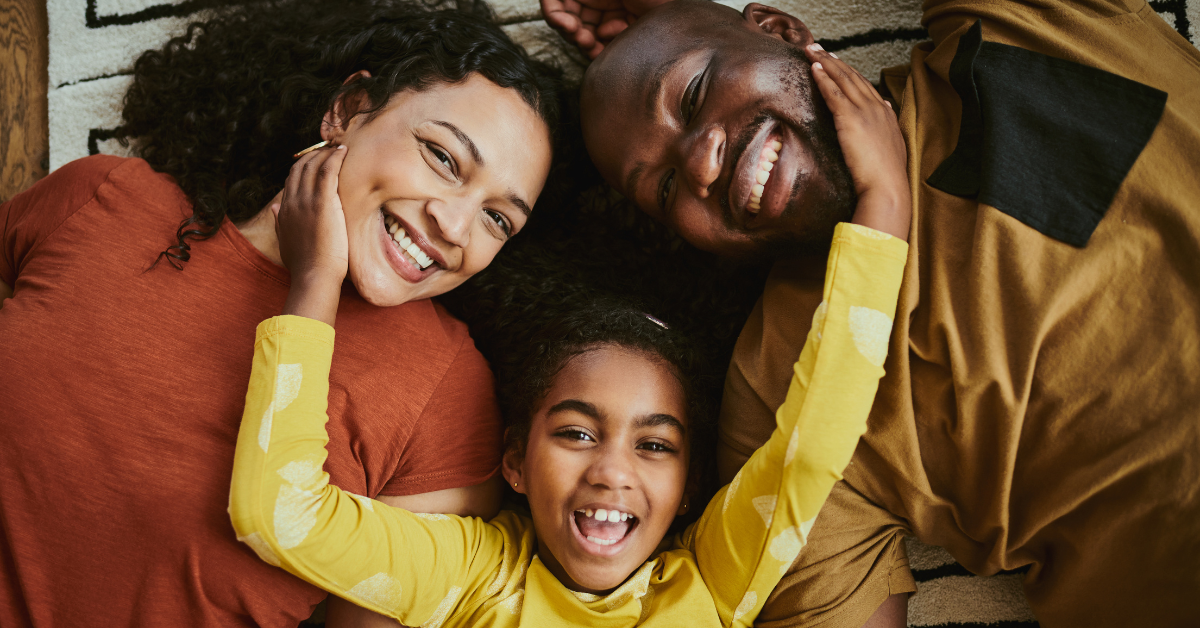
3 Quick Tips To Stop A Meltdown Before It Starts
Emotional regulation is the ability to recognize what we’re feeling and to remain in control of those emotions during heightened stress. For example, taking a pause and a deep breath before responding during a tense conversation with your spouse, or removing yourself from a hot, noisy, crowded room to splash cold water on your face and hands. People often learn these behaviors through therapy, self-help books, and trial and error. Remember, emotional regulation is something we learn, not something we’re born with.
Little children have big feelings and don’t always know what they are experiencing, why they are overwhelmed, or how to cope with discomfort. They need simple, tangible tools. Here’s how to model emotional regulation using mind/body awareness through positive parenting:
Tip Number One: Mindful Breathing
This can sound like a cliché, but when you want to help regulate your kiddos, you have to add in a little twist to get their interest. Telling them to take a deep breath doesn't always hit home, so having them add in their favorite sensory items can really take it to the next level where it's a skill they'll actually want to use.
For example, “What's your favorite flower, baby? Awesome, a rose? All right, I want you to breathe in through your nose like you're smelling all that beautiful rose fragrance. Good, and then exhale like you're blowing a really cool bubble.”
Flowers not your thing? Try their favorite food. “Inhale like you're smelling your favorite type of pizza. Exhale like you're blowing all the hot steam off that pizza.”
Adding in these little personal touches makes mindful breathing a fun activity that isn't just something benign to your child. Suggestions like “take a deep breath, calm down” aren’t as easy to practice.. We want to meet them where they are and make it fun.
Tip Number Two: What I Know vs. What I Don't Know
Anxiety runs rampant when things are unpredictable. That's why a new classroom, a new environment, a new friend, or a new food can feel so triggering. One game that is really effective at helping children regain control in their minds and turn off that fight or flight response is the game called What I Know vs. What I Don't Know.
This is from a podcast that's amazing for parenting sensitive children. It's called FlusterClux and you can find it here.
The premise of this game is you help your kid just make a list of things they know versus things they don't know. For example:
- You know your teacher's name. You don't know what dress she's going to wear on the first day of school.
- You know that there is another Lily in your class. You don't know where your seat is going to be.
- You know that you have your favorite snack in your lunchbox. You don't know who you're going to sit by at lunch.
This game helps children (of all ages!) with distress tolerance. When they can go through a list of things they're worried about, they can “name it to tame it”. In other words, naming things we know to be true helps us regain control by identifying challenges and feelings and reminding us we’re not completely lost.
Tip Number Three: Make Movement Your Friend
Anxiety is very physical. We feel it in our breath, in our heart, in our lungs, and especially when we’re little, in our tummies. Sometimes we complain of headaches or stomach aches when we're a kiddo actually experiencing the physical components of anxiety. It’s super effective to move that energy. Energy plus emotion is energy in motion. That's a feeling. So we gotta shift it. Sometimes the simplest answer is to just turn on Spice Girls or Usher or even Miss Rachel, God bless you, and just dance. Be silly. Twirl your child, whether they're four and dance along or 14 and roll their eyes. It's the same effect of changing the energy. Make it silly. Make it fun. Turn up the volume and let them know that life is not so serious, that you're not taking life so seriously that we can't have fun.
Play centers us in the present moment. Anxiety lives in the future. So anytime we can draw ourselves and our children back to present moment awareness, whether that's through mindful breathing, playing games, or moving our bodies, it's going to be a win.
At Lifeologie Counseling Rockwall, I specialize in working with parents who are exploring creative and mindful approaches to family life while often dealing with anxiety and other stressors. Reach out to me at (214) 357-4001 in Texas to learn more about mindfulness techniques, or find a Lifeologie therapist near you who can help you practice positive parenting.
Check out our Instagram reel to see these tips in action!

About Noel Baker
Noel Baker, LPC-S, specializes in anxiety, eating disorders, adult children of addiction and codependency, and postpartum recovery. In addition to her work at Lifeologie Counseling Rockwall, Noel loves to share the gifts of yoga and meditation with her community.
Meet Me.png)
.webp)
-1.png)

.png)